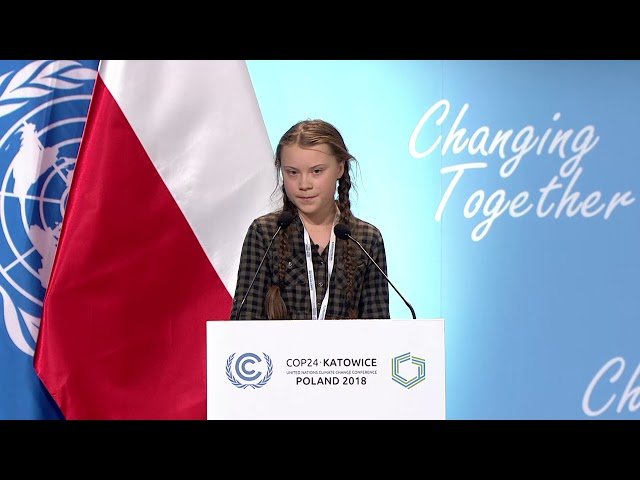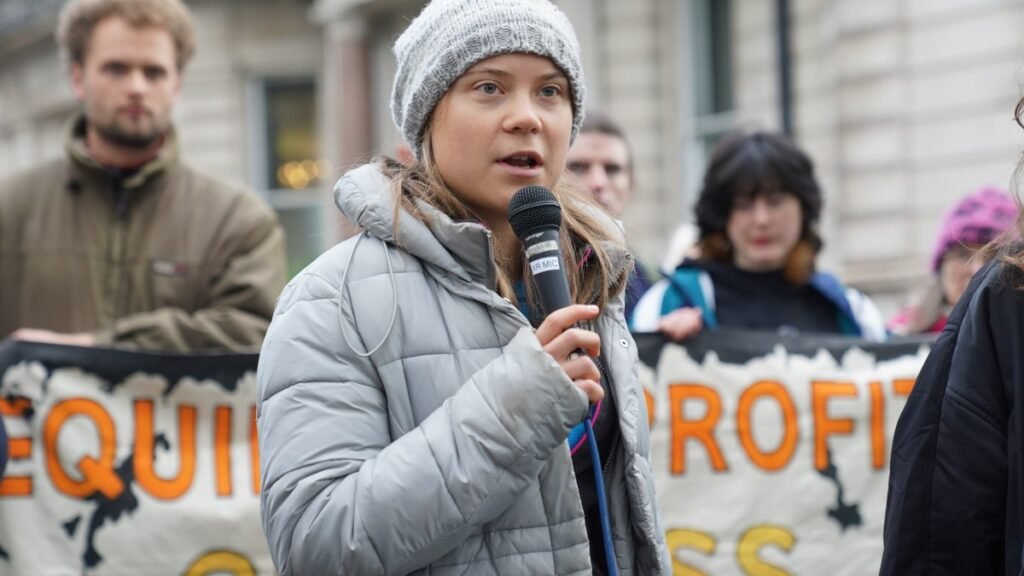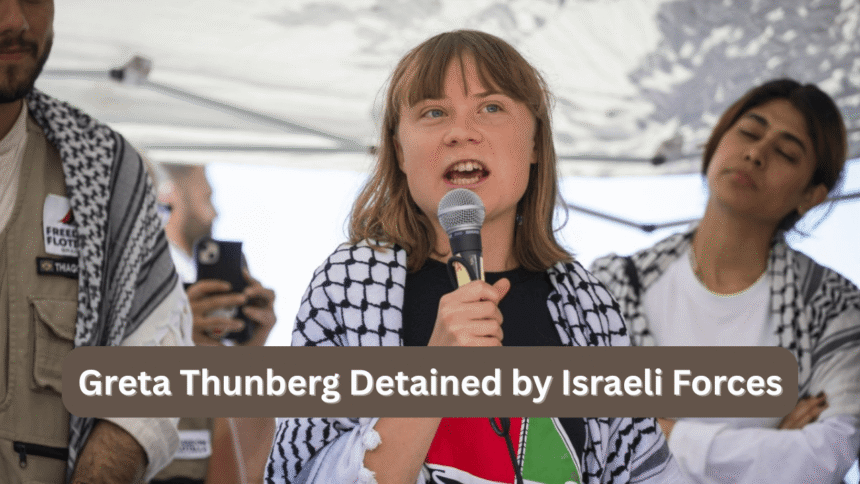Greta Thunberg, internationally renowned for her climate activism, has found herself at the center of a geopolitical storm after being detained by Israeli forces while aboard a Gaza-bound humanitarian aid vessel. The ship, part of a flotilla organized to deliver supplies to Palestinians in Gaza, was intercepted in international waters early Sunday.
Eyewitnesses aboard the vessel say that the interception occurred without warning, and several activists were taken into custody, including Thunberg. The group, called the Freedom Flotilla Coalition, stated that the mission aimed to deliver medical aid and essential supplies amidst the worsening humanitarian crisis in Gaza.
This is the first time Greta Thunberg has engaged in direct action linked to the Israeli-Palestinian conflict, sparking widespread reaction from political leaders, human rights organizations, and civil society groups around the world.
The Mission and Its Goals
The aid flotilla set sail from a Mediterranean port earlier this week with the goal of delivering essential supplies to the Gaza Strip. Organizers described it as a “purely peaceful mission,” intended to challenge the ongoing blockade on Gaza and to provide immediate relief to its people.

Greta Thunberg joined the voyage as both a symbolic and practical gesture. In her social media statement before departure, she emphasized the need to recognize “environmental and humanitarian justice as inseparable,” adding that the people of Gaza are among the most environmentally and socially vulnerable populations in the world.
This marked a significant expansion of Thunberg’s activism, which has traditionally focused on climate change. Her participation in the flotilla placed the spotlight not only on the environmental degradation in conflict zones but also on the political complexities of humanitarian aid delivery.
The Interception at Sea
According to multiple sources aboard the ship, Israeli naval vessels intercepted the flotilla roughly 60 nautical miles from Gaza’s shore. The vessels surrounded the aid boat and issued a command for it to divert course. When the activists refused, insisting on their legal right to sail in international waters, Israeli forces boarded the ship.
Greta Thunberg and other crew members were reportedly detained without violence. She was seen being escorted off the ship in a calm but visibly distressed state. Within hours, she posted a message through her team claiming that she had been “kidnapped by Israeli forces in international waters,” a statement that immediately sparked intense global reactions.
Israeli officials confirmed the detention but denied the characterization of the incident as a kidnapping. They asserted that the flotilla attempted to breach a legally enforced security blockade, adding that all detainees were being held for questioning and would be treated in accordance with international law.


Global Reactions Pour In
News of Greta Thunberg’s detention quickly trended across social media platforms, with #FreeGreta becoming one of the most-used hashtags within hours. Protests erupted in several cities including London, Berlin, Sydney, and New York, as demonstrators demanded her immediate release and criticized what they described as “military aggression against peaceful activists.”
The United Nations expressed concern over the situation and urged Israeli authorities to ensure the safety of those detained. Amnesty International also issued a statement demanding transparency in the legal processes that will follow and condemned what they termed “the criminalization of humanitarian efforts.”
Greta Thunberg’s role in the incident elevated it to a global issue. Many political commentators noted that her popularity and influence transformed what could have been a small-scale interception into a headline-dominating international incident.
A Shift in Thunberg’s Activism

Though she has always championed environmental justice, Greta Thunberg’s recent actions signal a deeper alignment with broader human rights causes. During the past year, she has spoken out more frequently on issues intersecting with environmental injustice, including colonialism, forced migration, and war.
By taking part in the Gaza-bound aid mission, Greta Thunberg has broadened the scope of her public platform. Critics argue that this move could risk diluting her climate message, while supporters praise her for recognizing the interconnectedness of global struggles.
“Justice for Gaza is a climate issue,” Thunberg said during a press conference just before embarking on the flotilla. “No climate solution is sustainable if it ignores the people suffering from militarization, occupation, and environmental collapse.”
Legal Uncertainty and Diplomatic Pressure
As of now, the legal status of Greta Thunberg and the other detained activists remains uncertain. Israeli officials have stated that the group may face charges related to attempting to violate a maritime security zone. However, no formal indictments have been filed.
Diplomatic channels are reportedly working to negotiate the release of the activists. Several European governments, including Sweden (Greta Thunberg’s home country), have contacted Israeli diplomats to inquire about the status of their citizens.
If the case escalates further, it could strain diplomatic relations between Israel and countries whose citizens participated in the flotilla.
Spotlight on Gaza Once Again
The incident has also redirected the world’s attention to the ongoing crisis in Gaza. With essential services collapsing, and civilians caught in the crossfire of conflict, humanitarian access has been severely restricted.
International agencies have been sounding alarms for months over the deteriorating situation in Gaza. Thunberg’s participation in the flotilla has brought renewed visibility to these appeals, and many hope that it will generate increased international pressure to improve conditions on the ground.
The Path Ahead for Thunberg
Whether Greta Thunberg will face legal consequences or be deported remains to be seen. However, one thing is clear: her actions have sparked a renewed global conversation about the role of activism in times of crisis.
By joining the Gaza-bound aid vessel, Greta Thunberg has added a new chapter to her legacy—one that underscores the growing intersection of climate activism and humanitarian advocacy. This event marks the third time this year that Greta Thunberg has made headlines not for a climate summit, but for standing up against perceived global injustices.
As debates continue, her supporters argue that this kind of bold, cross-border solidarity is what the world needs now more than ever.
Also, read: U.S. Government Taps Palantir for Strategic Data-Sharing Project

